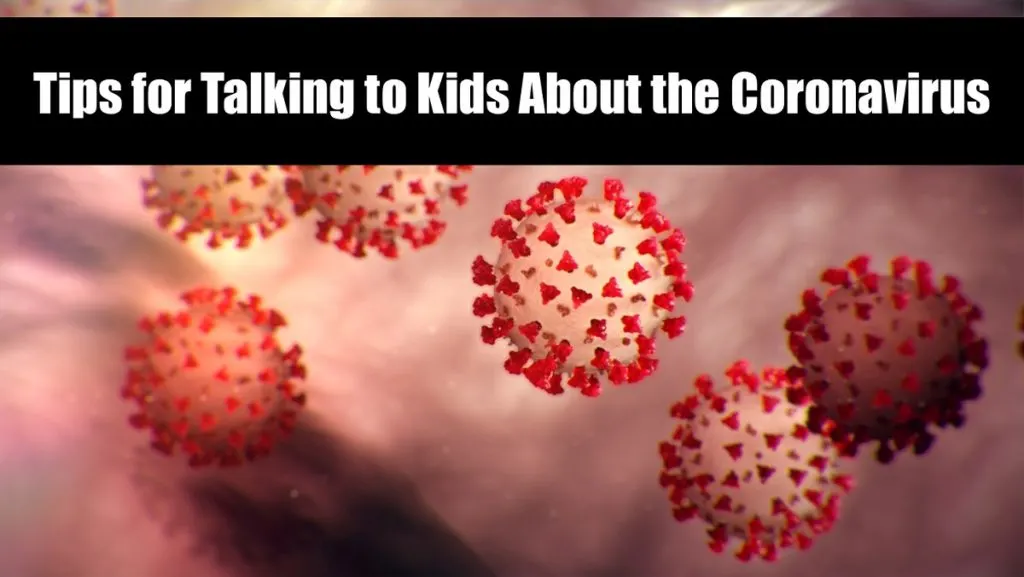
These are anxious times, my friends. The coronavirus (COVID-19) is causing shutdowns of all kinds and forcing us to socially distance ourselves from friends and loved ones. And if we’re feeling stressed and anxious, we can only imagine how our kiddos are feeling. So how do we talk to them about the coronavirus in a way that helps them understand what’s going on in the world, but that doesn’t freak them out even more? Here are some tips for talking to kids about the coronavirus.
Don’t put it off.
Like waiting to have “THE TALK” is a bad idea, avoiding talking about the coronavirus is a bad idea, too. My husband and I did that when the virus was just starting to hit the US, figuring our eight-year-old daughter didn’t really need/want to know, and not really thinking about the fact that she was hearing about it at school. By the time we actually started talking to her about it at home, she was completely freaked out by all the misinformation she was getting from her peers. Not talking about such a big important news topic can cause children to worry more.
Be developmentally appropriate
in what you share and how you share it. One friend shared a Facebook post in which a dad explained social distancing to his nine-year-old as similar to keeping people safe while swimming (check it out, it’s really helpful). Another friend shared a free, downloadable illustrated story about COVID-19 meant for children ages 2-7.
Stick to the facts.
Keep your answers simple—don’t give more information than your child requests. If they want more detail, they’ll ask for it. And be sure to correct misinformation. If you’re wondering where to start, the Centers for Disease Control and Prevention (CDC) has a list of facts to share with children, as does Harvard Medical School. Remember it’s okay if you don’t have the answers to your child’s questions; you can always offer to look up answers and get back to your child later. (The World Health Organization [WHO] has a great myth-busters page.)
Keep calm.
Your children take their cues from you, so do your best to keep yourself calm. (I know, I know.) If your child is nervous, validate their concern: It’s okay to be a little bit worried, but there’s no reason to be scared. Reassure your kids that a lot of people are working very hard to make things better.
Teach children what they can do.
Give children a sense of agency and ways to take action. Remind them that things like
- coughing and sneezing into their elbow
- washing their hands properly,
- and staying home from school; cancelling events; avoiding places like restaurants, play spaces, stores, church, and movie theaters; and not playing with friends can help keep them, and their friends, family, and neighbors healthy.
This is a totally doable conversation (or a few conversations) to have. And it will help calm everyone’s anxieties a bit once you’ve talked! Have you talked with your kids about COVID-19? Do you have any great wisdom to share with us? Pass it along in the comments!
